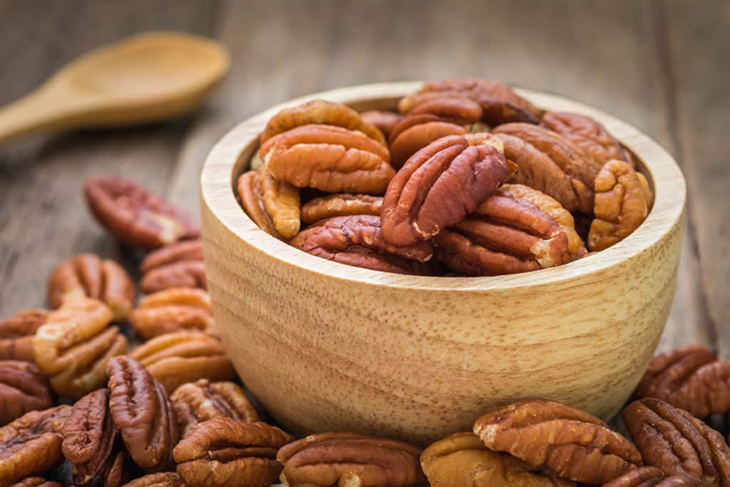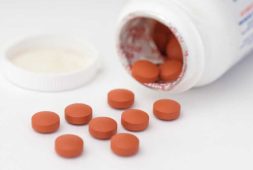
Although the entire world still isn’t in complete agreement about how to pronounce the word pecan, what no one can argue about are the health benefits of this tasty tree nut. In fact, researchers from the University of Georgia have found that the pecan nut has the ability to ‘dramatically improve a person’s cholesterol levels.’
A study that was done by researchers from the UGA College of Family and Consumer Sciences. They looked at participants who were classified as at risk for cardiovascular disease. They were made to eat pecans throughout an eight-week intervention, where the outcome showed substantial improvements in their total cholesterol, triglycerides and their low-density lipoprotein (LDL), which is otherwise known as the “bad” cholesterol.
Professor in the FACS department of nutritional sciences and one of the study’s authors, Jamie Cooper, explains, “This dietary intervention, when put in the context of different intervention studies, was extremely successful. We had some people who actually went from having high cholesterol at the start of the study to no longer being in that category after the intervention.”
What the researchers observed in the participants who ate pecans was a 5% average drop in the total cholesterol and between 6% and 9% in their LDL.
To better understand their results, the research team looked at a previous meta-analysis that was done on 51 exercise interventions that were created to lower cholesterol. The results of the meta-analysis showed an average of 1% in total cholesterol and 5% in LDL cholesterol on average.
Cooper also shared, “The addition of pecans to the diet not only produced a greater and more consistent reduction in total cholesterol and LDL compared to many other lifestyle interventions, but may also be a more sustainable approach for long-term health.”
“Some research shows that even a 1% reduction in LDL is associated with a small reduction of coronary artery disease risk, so these reductions are definitely clinically meaningful,” he added.
For the new study, the research team assigned 52 adult participants between the ages of 30 and 75 to one of three groups that were at a higher risk for cardiovascular disease.
One group was made to consume 68 grams of pecans a day, which was about 470 calories of their regular diet. The second group was made to substitute pecans for an item that had the same or a similar amount of calories from their usual diet. While the third group, or control group, did not eat pecans at all.
At the eight week mark, the participants ate a high-fat meal to determine changes in their blood lipids, as well as the amount of glucose – or sugar – in their blood.
The results showed that the fasted blood lipids had similar improvements in the two groups who ate pecans, while the post-meal triglycerides were lessened in the group that added pecans. Meanwhile, the post-meal glucose was reduced in the group that had substituted the pecans.
According to Cooper, who also happens to be the director of the UGA Obesity Initiative, “Whether people added them or substituted other foods in the diet for them, we still saw improvements and pretty similar responses in total cholesterol and LDL cholesterol in particular.”
The study research group, whose work was published in The Journal of Nutrition, shared that it’s probably the known bioactive properties of pecans that are the pushing mechanisms that are driving these improvements.
Notably, studies also show that pecans are a rich source of minerals, are loaded with flavonoids, they can help improve blood sugar levels and insulin sensitivity, while also being incredibly high in healthy fatty acids and fiber, two factors linked to lowered cholesterol.



